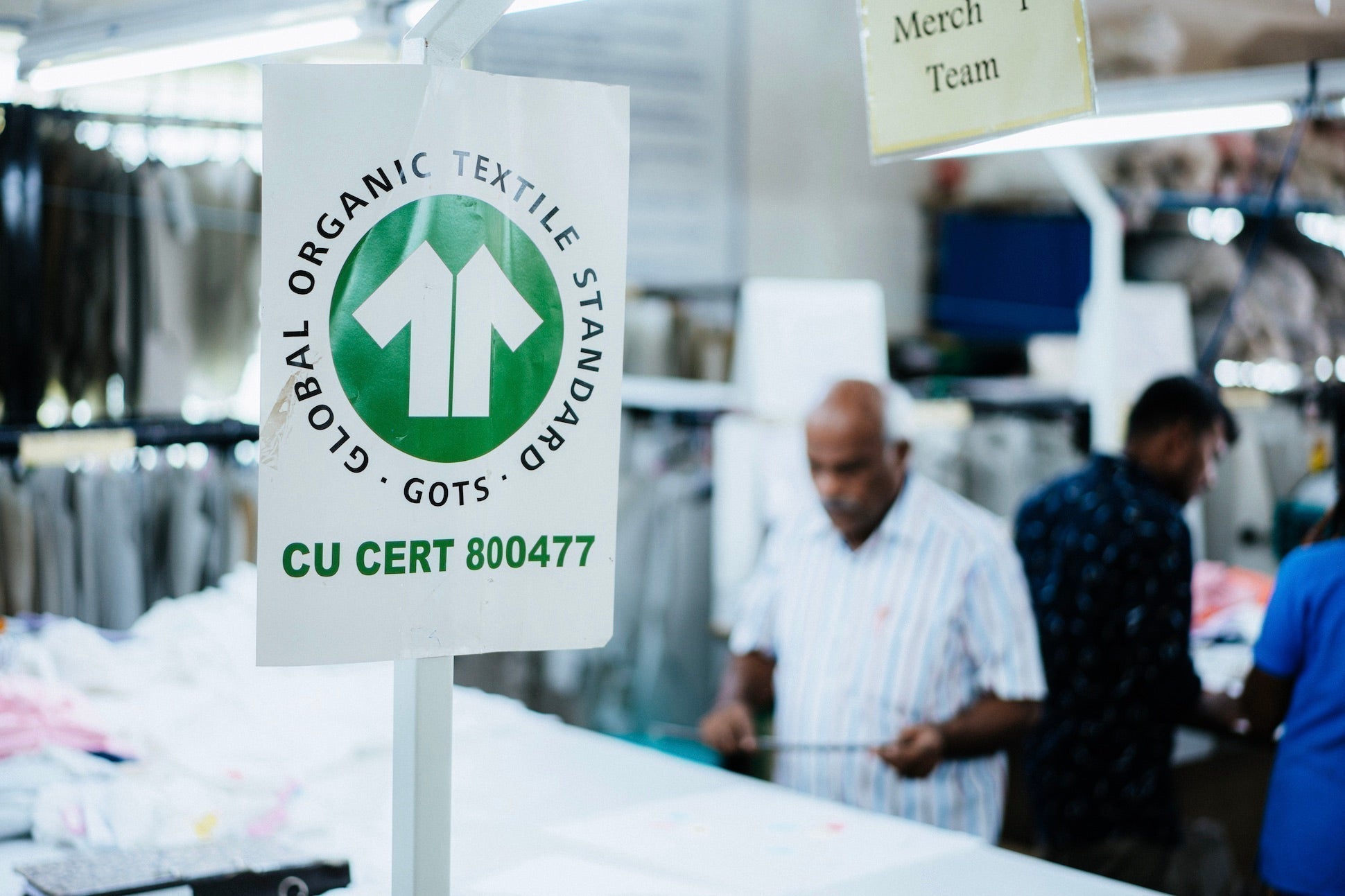Here’s a roundup of some of the finest sustainable fashion stories that hit the news in November.

Asket now gives customers 'impact receipts'
November 5th, 2023
Have you ever wondered how much water was used to make your jeans? What about the energy needed to produce your favourite organic cotton t-shirt?
You probably noticed some brands are sharing more information on their e-shop’s product pages. The better ones are forthcoming about eco-friendly fabrics and sustainability certifications. Maybe even something about a recycling programme.
But Asket, an uber anti-fast fashion brand hailing from Sweden, has just changed the game. Starting this month, they provide shoppers with two receipts: 1) the run-of-the-mill bill and 2) a breakdown of all the environmental costs resulting from their purchase. That is, resource consumption for each piece of clothing, plus CO2 emissions associated with both packaging and delivery.
 Source: Asket - Press Kit
Source: Asket - Press Kit
Why? So that we become aware of how much our choices are affecting the planet. In the same way we track the money going in and out of our wallets.
Bangladesh’s garment workers finally get a minimum wage increase
November 7th, 2023
One of the common misconceptions about sustainability is that it is only concerned with the environment. The reality is that it is concerned with so much more. Sustainability also encompasses social and economic conditions, especially when it comes to the workers within so-called sustainable supply chains.
The drive for efficiency can lead to job cuts (automation is one key driver) and prevailing macroeconomic conditions can sometimes be used to justify wage cuts. Sometimes, brands can use their power to demand lower production costs from the factories they source from. In Bangladesh, factory owners have complained that production costs are higher due to rising energy and transportation costs (macroeconomic conditions) and that Western firms are offering to pay for less for production (brand power abuse).
Protestors have been campaigning for higher wages after the Bangladesh Garment Manufacturers and Exporters Association offered to increase wages 25% to only $90 per month. Protestors had demanded a wage of $208 per month. The protests turned violent and sadly two workers were left dead and several more injured. Finally, Bangladesh’s government announced a higher minimum wage for garment workers of $113 per month (a raise of 56%).
Passing on the buck
November 14th, 2023
The brand power abuse that we mentioned above is in fact a systemic issue. After all, next year is the 25 year anniversary of No Logo being published. A new report suggests that this power abuse may in fact present a fatal obstacle to climate action objectives in addition to the economic and social sustainability considerations we reported on above.
The Transformers Foundation released a report that suggests the fashion industry’s climate strategy is doomed to fail unless a collective and equitable approach is undertaken. It considers that there is currently an undue burden on suppliers to achieve decarbonisation as well as figuring out the way to fund it.
Consequently, one of the report’s recommendations is to fund collectively. While urging the industry to find projects that pay back their investment quickly, the report recognises that new funding models are needed to help suppliers undertake decarbonisation projects that might be too risky for small suppliers to take on by themselves. H&M recently announced that it is partnering with DBS to offer financing solutions to businesses to drive decarbonisation. Such individual efforts are of course welcome but as the report urges, more collective action is needed.
SuperCircle secures $7M to meet brands’ demands for textile recycling solutions
November 16th, 2023
Fast fashion needs to end. People need to buy less. Brands need to change.
Yada yada yada.
Until better business becomes the norm, the chatter around the importance of a sustainable fashion industry will be endless and repetitive. But thankfully, more players are trying to provide solutions to incoming regulations.
Take the end-to-end technology and logistics platform Supercircle, which supports the complexity of achieving a circular economy. They’re able to connect brands, which have takeback programmes, to waste management companies. Not even two years old, the platform claims to have powered the recycling of over a million garments, post-purchase.
They’ve already partnered with some leading brands like Tentree and Reformation. But it’s not enough. Supercircle has a long way to go to back industry-wide scaling, adoption, and change. So to go further in the quest for textile recycling, they’ve just earned themselves another USD 7 million in funding. Bravo.
Vestiaire Collective bans top fast fashion brands
November 16th, 2023
You’ve probably already heard: Vestiaire Collective, the leading French luxury resale platform, has banned a second wave of fast fashion brands like Abercrombie & Fitch, Gap, H&M, Mango, Uniqlo, Urban Outfitters, and Zara. They introduced a fast fashion blacklist in 2022 as a result of a visit to Kantamanto market in Ghana. The market is one of the largest clothing resale markets in the world. It sounds exciting but 40% of the garments leave unsold, as waste.
This discovery of the volume and impact of fast fashion quickly led to the beginning of the bans, alongside the promotion of higher-quality secondhand items. Their goal is to ban fast fashion from their platform completely by 2024. Vestiaire Collective is also taking further actions to ensure that their ban doesn’t push more waste into Kantamanto. True sustainability can be tricky and paradoxical, so it’s great to see they’re looking at all of the implications of their decisions..
 Vestiaire Collective’s #ThinkFirstBuySecond campaign, made using AI
Vestiaire Collective’s #ThinkFirstBuySecond campaign, made using AI
After all of the sins that fashion’s giants normally get away with, this impactful move is the kind we need to inspire more sustainable change in the fashion industry. Beyond words.
Cotton and climate
November 23rd, 2023
Solidaridad recently published a report on Cotton and Climate that points out that every cotton producing region will be negatively affected by climate change. Furthermore, the reliability of cotton production will be challenged if smallholder farmers are unable to adapt to these new conditions, especially when the price of cotton is low.
There is therefore a need to invest in cotton farming to address climate change by supporting farmers to adopt regenerative agricultural practices. Part of this approach requires the phasing out of synthetic agrochemicals which are considered to inhibit the capture of carbon in soil.
The report is an open and frank look at the cotton industry and suggests ways forward that will take time and investment. There may also be greater uncertainty ahead for the smallholder farmers as the industry adapts to the new ways of working.
We’re fortunate at Pomp to work within a supply chain that prizes circularity and certified organic cotton. You can read more about this here to learn about how our approach affects soil quality and so much more.



